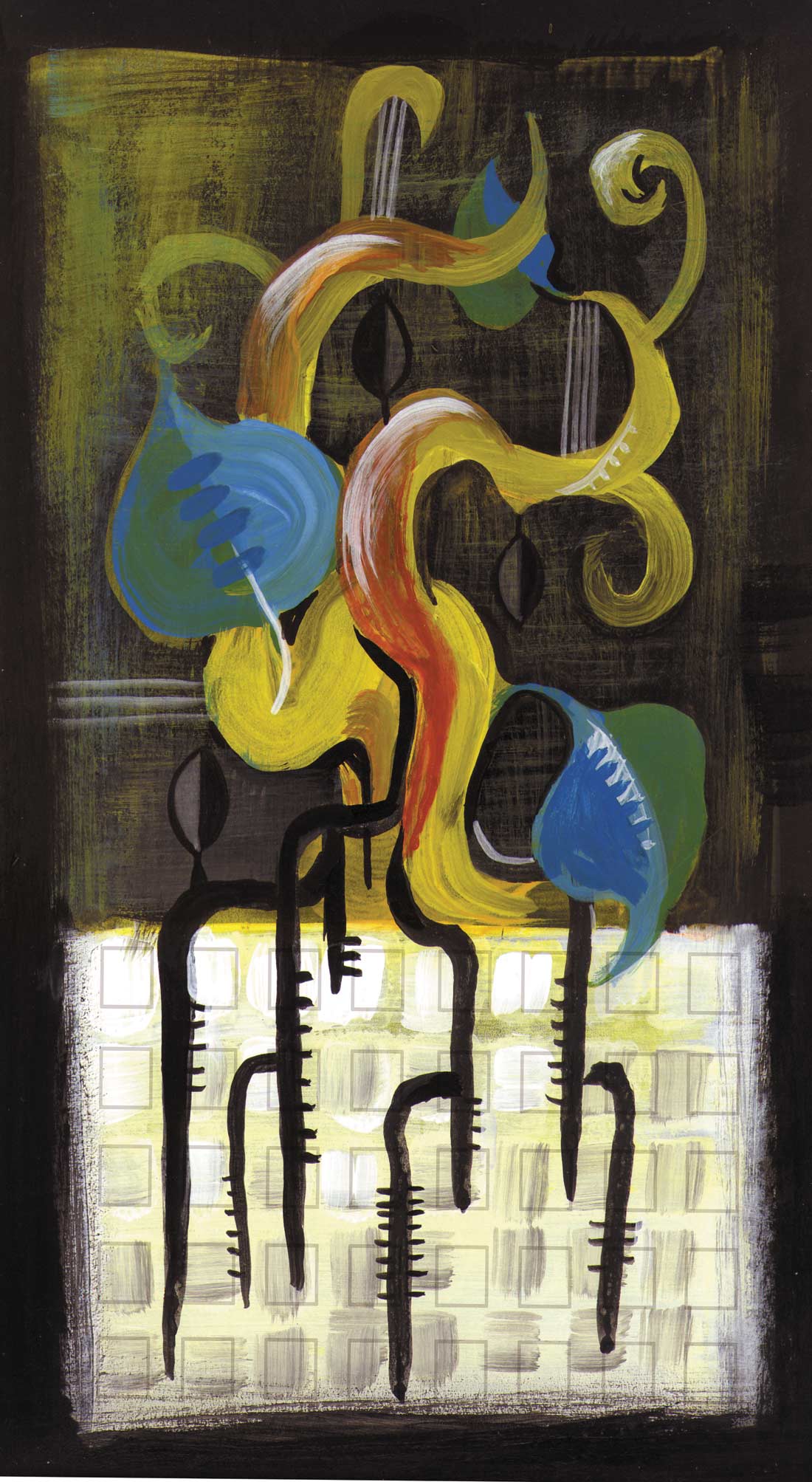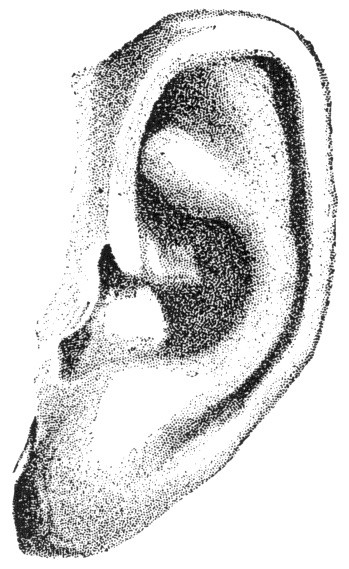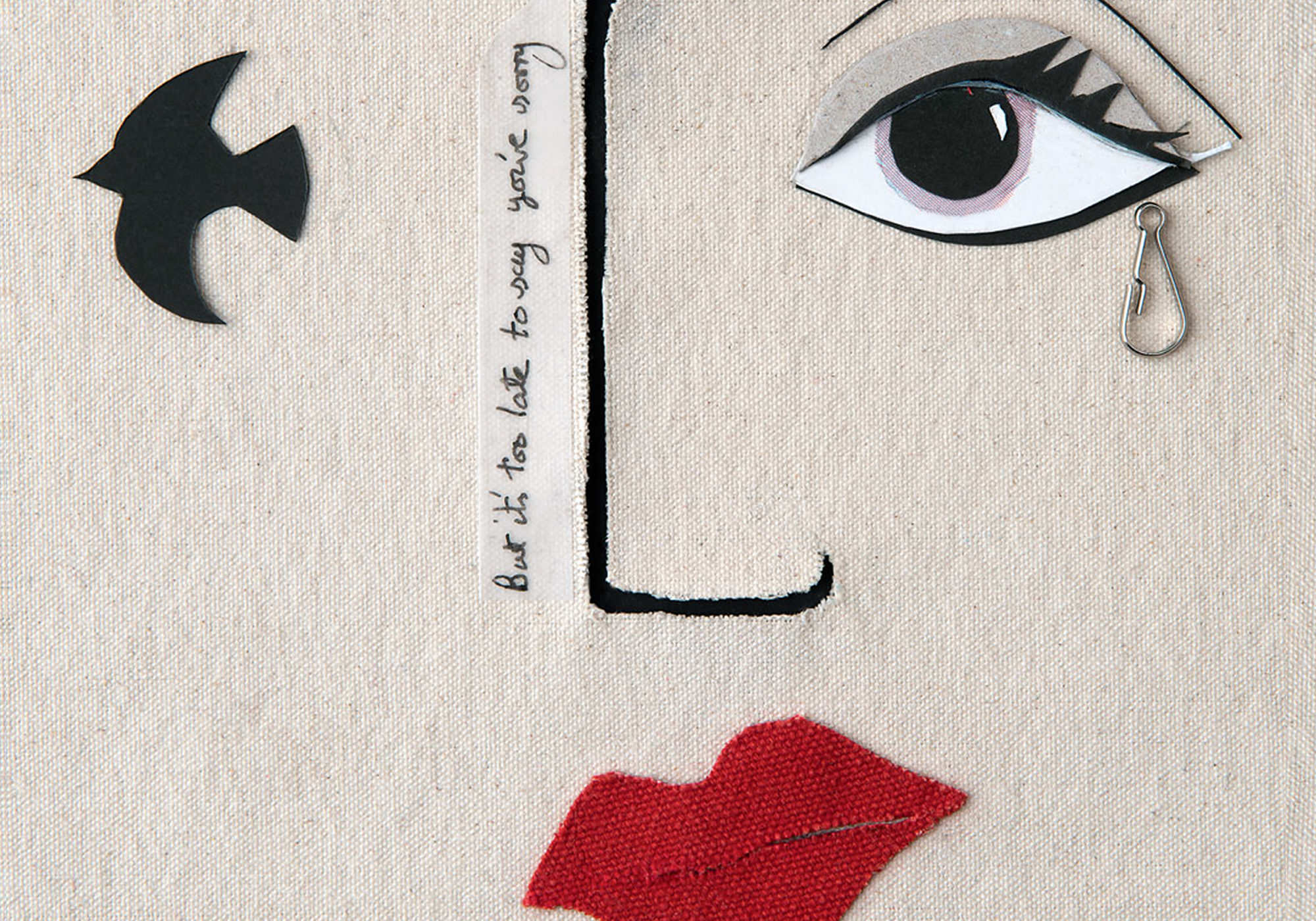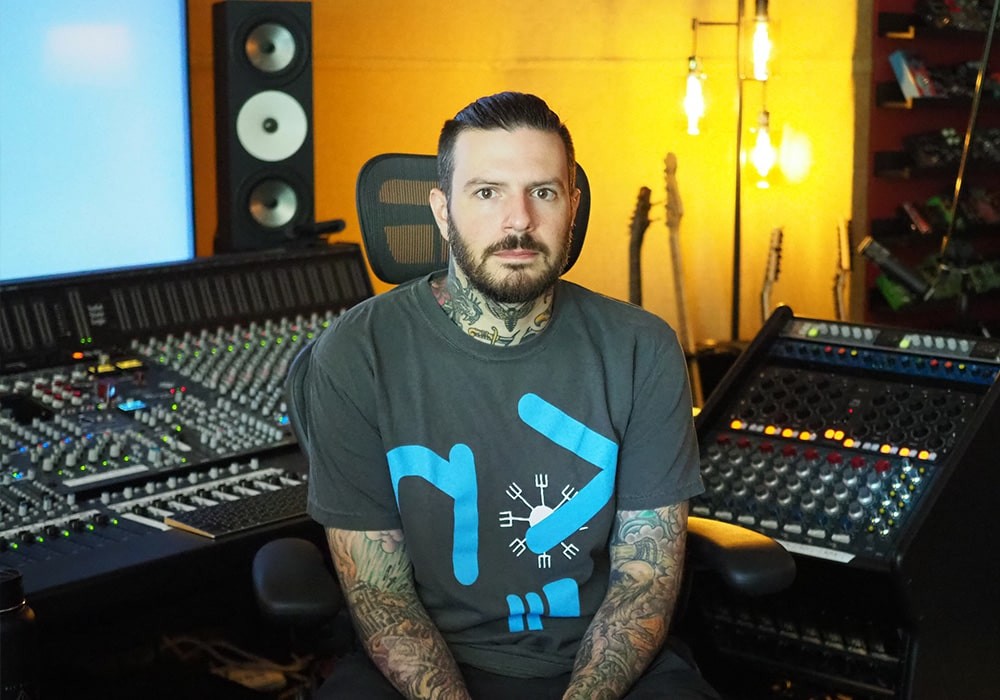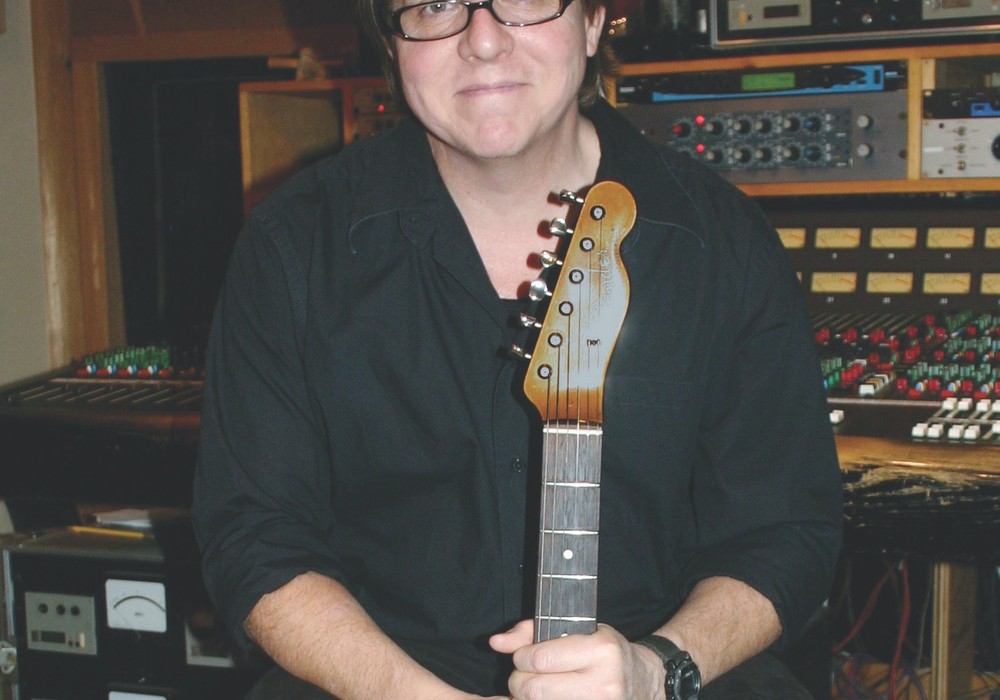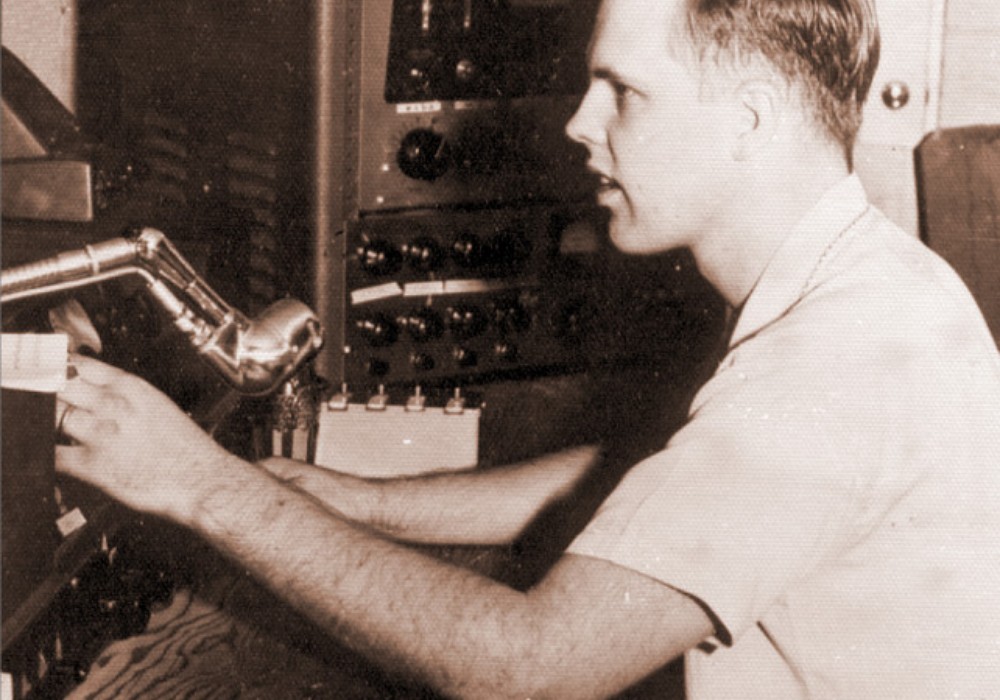It seems like a cruel joke: Your love of music inspires you to pursue a career playing or recording it or both. You spend years honing your craft, only to find that exposure to loud music all that time has caused hearing problems, like tinnitus, that hinder your ability to work with and enjoy music. Following your passion has seemingly put the kibosh on a career future doing just that.
If you can relate to this scenario, you're not alone. At a panel on health at TapeOpCon earlier this year, about half of the audience members raised their hands when panelist Jack Endino asked how many had had spontaneous attacks of tinnitus. Nationwide, approximately 40 million people have chronic tinnitus. For 30 million of them, tinnitus isn't bothersome. For others, it can get in the way of work, sleep and quality of life. Even for those whose daily lives are negatively affected by tinnitus, it isn't a life sentence. There are helpful strategies you can use to avoid getting it and to manage tinnitus if you already have it. First, let's get a clear sense at what we're dealing with.
What?
Tinnitus is not a disease, but a symptom that can be related to most hearing problems. It's typically described as ringing in the ears, but buzzing, hissing, roaring and other sounds have also been described. Causes include exposure to loud sounds, tumors on the hearing nerve, middle or inner ear infections, changes in blood flow or wax on the eardrum. Loud music is often the culprit among engineers and musicians.
"Most scientists agree that tinnitus is abnormal nerve activity that reaches the hearing centers of the brain where it is interpreted as sound," explains William Hal Martin, Ph.D., Multi-Program Director of the Oregon Hearing Research Center at OHSU in Portland, Oregon. "No actual sound energy is passing through the ear. The nerve activity is caused by some kind of damage, either to tiny sensors in the cochlea (the organ of hearing) or by damage to the nerve pathways between the ear and brain."
Martin sees a parallel between tinnitus and phantom limb pain. When someone traumatically loses an arm or leg, for example, that person still experiences sensations from the missing hand or foot as the brain tries to make sense out of the signals arriving in the sensation centers. "The only thing it knows how to do is to interpret the incoming damage signals as sensation from the missing limb," says Martin. "In tinnitus, the brain is experiencing sound as a result of error signals arriving in the hearing areas of the brain."
Tinnitus won't make you lose your hearing, but it can be worse if there is hearing loss. As noted on the Oregon Health Sciences University (OHSU) Tinnitus Clinic web site (www.ohsu.edu/ohrc/tinnitusclinic), ninety percent of severe tinnitus patients experience some degree of hearing loss, usually in the high frequencies, which may be caused by exposure to loud sounds. Tinnitus doesn't actually interfere with hearing, but it can affect your attention span. If you have hearing loss, tinnitus can seem worse because there are less audible sounds to cover it up. Most patients also report that tension or stress makes their tinnitus worse.
Prevention is Key
Martin says that people who work with music regularly can avoid getting tinnitus by taking advantage of what we know about noise-induced damage to the ears. "Damage results from a combination of the sound intensity and the time of exposure," he explains. "So moderately loud sounds can cause the same amount of damage over a period of hours that an intense sound can cause in minutes or even seconds."
Letting the ears rest in quiet seem to be very important in helping them recover from temporary injury due to sound. "Unfortunately, if music is a profession, sound levels and exposure times become occupational hazards," Martin cautions. But it is possible to reduce the amount of sound entering your ears.
Martin recommends musicians' earplugs that are specially designed to evenly reduce sound energy across all frequencies. The result is quieter, clean and natural sound without the distortion or boominess associated with typical foam insert plugs. You can buy musicians' earplugs through an audiologist.
A custom fit plug is produced from your ear impression and a tiny filter fitted to the plug reduces sound by nine, 15 or 25 decibels, depending on the anticipated sound exposure. Such earplugs are also great for protecting the ears at loud concerts and clubs. Mixing and monitoring at lower levels can decrease the odds of damage as well.
Where to Find Help
If you suspect that you have tinnitus, consider consulting an ear, nose and throat doctor, known as an otolaryngologist. Your doctor may not be able to determine the exact cause of your tinnitus due to individual variation, but he or she can likely help you devise strategies to manage it. At the OHSU Tinnitus Clinic, for example, the expert staff works with patients to design effective treatment programs custom tailored to each case. A patient's medical, hearing, tinnitus and psychosocial histories and conditions are all taken into consideration. An initial visit can take more than four hours, as it includes assessment, education, reassurance, counseling and designing and initiating a treatment program. Follow-up appointments are usually between two and three hours.
A naturopathic physician (N.D.) may be able to help you with natural approaches to alleviating tinnitus, including potentially effective herbal medicines, vitamins and diet and lifestyle modifications. To find a naturopathic physician in your area or to learn more about naturopathic medicine, visit the American Association of Naturopathic Physicians web site (www.naturopathic.org).
Managing Tinnitus
Martin notes that there's a difference between treatment and management of tinnitus. If there is an active disease process causing tinnitus, such as a middle ear infection or cochlearn inflammation, medical or surgical treatment resolves the problem and the tinnitus goes away. If it doesn't go away after treatment or if there is no active disease process found, there is no cure for tinnitus, but there are several treatments that offer relief.
Acoustic therapy, used at the OHSU tinnitus clinic and many others, adds or enhances external sounds that reduce the perception of tinnitus. Tapes, CDs and bedside units that aid concentration and sleep, as well as sound generators worn in the ears and hearing aids are some forms of acoustic therapy. Pillows with small, embedded speakers where sound generation machines and tape and CD players can be plugged in are also an option.
Replacing the high-pitched ringing of tinnitus with another sound might seem like an odd approach, but there are reasons it works. Sound generators produce pleasant sounds, like the ocean or rain, and they can muffle the annoying sound of tinnitus. These and other masking sounds are easier to adapt to and ignore than tinnitus because the latter is generated in the patient's brain. With sound generators, patients have some control over their tinnitus because they can adjust the volume and decide when and where to use them. Acoustic therapy won't necessarily mask tinnitus entirely, but it can provide immediate relief. And, according to information from OHSU, some evidence suggests that wearing sound generators for at least six hours per day for six months to two years results in a permanent reduction of tinnitus loudness and severity.
"The human brain can actually be trained to push the perception of tinnitus far into the background, as it naturally does with other unimportant stimuli," Martin says. For example, articles like earrings, watches, shoes and socks all send sensory signals to the brain, but the brain automatically ignores them to focus on more important tasks-lucky for us. "Imagine concentrating on the feeling of your socks around your feet all of the time. It would drive anyone crazy," he points out.
Counseling is another element of treatment programs. Biofeedback, relaxation therapy, hypnosis, stress reduction and cognitive therapy fall under this category. Medications, such as sleep aids and medications to reduce anxiety or other emotional problems that are biochemical in nature, are sometimes recommended as well. Medical intervention is sometimes worth exploring and tinnitus retraining therapy, also called habituation therapy, is another aspect of treatment that has been highly effective for many patients. To learn more about this therapy, see the OHSU Tinnitus Clinic web site.
Lifestyle changes can help alleviate tinnitus, too. Avoiding loud sounds and keeping alcohol, caffeine and aspirin use to moderate levels or less are recommended. If you smoke, quit. Besides causing other health problems, smoking can decrease circulation, thereby possibly contributing to tinnitus. Eating a healthy diet (high in vegetables, fruits, whole grains, healthy fats and lean protein sources) and exercising and sleeping regularly will benefit your overall health, and cardiovascular exercise like brisk walking, jogging or biking, can improve circulation (poor circulation can contribute to tinnitus and heart problems). Even the American Medical Association has begun advising all American adults to take at least one multivitamin and mineral supplement a day; think of it as inexpensive health insurance. Aspirin, non-steroidal anti-inflammatory drugs, or NSAIDs, and some prescription drugs can make tinnitus worse, so consult your doctor if you think medication you are taking might be adding to the problem; don't discontinue prescription drugs on your own.
On the flip side, prescription medications including benzodiazepines like Xanax, Ativan or Klonopin sometimes alleviate insomnia and anxiety associated with tinnitus. Low doses before bedtime (.25 or. 50 mg) can aid sleep, but higher doses (1.5 mg per day or more) aren't typically recommended. Keep in mind, however, that many drugs may cause pesky side effects. Mild, natural sleep aids like kava and valerian are available over-the-counter and helpful for some people. (A homeopathic sleep and anxiety remedy that is especially gentle, effective and safe is Calms Forte, available at health food stores.)
Major depression sometimes accompanies tinnitus, and successful treatment can reduce tinnitus severity. A psychiatrist can help you determine if prescription antidepressants are worth a try, and counseling or psychotherapy should be used in tandem with these drugs. For mild to moderate depression, natural alternatives like the St. John's Wort may be effective. A naturopathic doctor can advise you on this if your depression is mild.
Natural Approaches
Chris Meletis, N.D., former Dean of Clinical Education and Chief Medical Officer at the National College of Naturopathic Medicine, who now practices at the Pearl Clinic in Portland, has found natural therapies to be effective in helping his patients with tinnitus. Supporting the bone structure and nerves of the ear that are involved in conducting sound are part of his strategy. He recommends glucosamine sulfate for joint health and B vitamins (a good B-complex vitamin and B-12 sublingually, which is absorbed efficiently under the tongue) to maintain nerve health, along with ginkgo biloba and other natural supplements to promote healing.
"Avoiding food allergies can also help improve the function of the ear, since fluid retention even in a healthy ear leads to a damping effect," Meletis asserts. (A non-doctor allergy testing service is available at www.myhealthdynamics.com.)
Ginkgo biloba extract, an herbal medicine available over the counter that has been used historically in Chinese medicine and traditional herbal medicine, has proven effective for some tinnitus sufferers and is often recommended by N.D.s. Ginkgo is known to regulate neurotransmitters and exert neuroprotective effects in the brain, so it protects against nerve cell degeneration. In addition, ginkgo improves blood flow in small vessels by dilating them, meaning that it improves circulation, which helps explain why it may benefit tinnitus and memory in older adults. It's also an antioxidant, meaning that it combats harmful molecules in the body called free radicals, protecting our cells from damage.
Ginkgold, by Nature's Way, is a product standardized to contain specific amounts of active constituents that has shown particular promise, anecdotally among sound engineers and others and in some clinical trials. Clinical research studies with ginkgo extracts have shown conflicting results, probably due, in part, at least, to the complex nature of the causes of tinnitus. In other words, ginkgo may be more effective for certain types of tinnitus than others. But there is enough evidence to suggest that ginkgo might be worth trying if you're bothered by tinnitus.
In one recent placebo-controlled study, 60 patients were given an infusion of 200 mg per day of standardized ginkgo biloba extract for ten days, followed by either placebo or two 80-mg doses of ginkgo daily for 12 weeks. (1) Ginkgo was found to be significantly superior to placebo in alleviating tinnitus, with no reported side effects. The author of a recent review of clinical trials with ginkgo published in a German medical journal noted that ginkgo has led to appreciable improvements in tinnitus in several studies and that it was well tolerated. (2)
A common dosage is 120 mg per day, though a maintenance dose of half that has been reported effective by some patients after initially taking the higher dosage for a year or two. German researchers are currently investigating the potential of the standardized extract known as EGb 761 for the treatment of sudden deafness and tinnitus in clinical studies. Ginkgo is mild and generally safe, but do not take it if you are taking anticoagulants (blood thinners) such as warfarin or aspirin, as it could compound the effect. Future research should shed more light on the potential benefits of ginkgo in alleviating tinnitus, but naturopathic practitioners and sound engineers who have experienced success with it don't need more convincing.
"I would say that ginkgo has helped several of my patients, and when it comes to research on tinnitus, when the right herb is used at the right time it works," Meletis says, adding that "just because a person has tinnitus doesn't necessarily mean that ginkgo will always work. It is more likely to work if there are other circulatory issues going on, like high blood pressure or cold hands and feet or fading memory."
There You Have it
All of this information may be overwhelming, but it should at least give you a sense of the range of strategies for preventing and managing tinnitus. Martin offers some encouraging final words about dealing with the condition.
"Tinnitus management is available and has provided significant relief and life improvement for thousands of individuals. Those with chronic, problematic tinnitus shouldn't give up, but they should seek out qualified, experienced, knowledgeable clinicians who work with tinnitus patients on a regular basis and who are willing to take the time necessary to find a management strategy that will give long-term relief."
Hopefully, if you follow his advice, the only ringing in your ears will be coming from the studio, not from inside your own head. r
References
(1) Morgenstern C, Biermann E. The efficacy of Ginkgo special extract EGb 761 in patients with tinnitus. Int J Clin Pharmacol Ther, 2002 May;40(5):188-97.
(2) Holstein N. [Ginkgo special extract EGb 761 in tinnitus therapy. An overview of results of completed clinical trials]. Fortschr Med Orig, 2001 Jan 11;118(4):157-64.
Resources
Oregon Health Sciences University
(OHSU) Tinnitus Clinic
www.ohsu.edu/ohrc/tinnitusclinic (503) 494-7954
American Tinnitus Association
www.ata.org
American Association of Naturopathic Physicians
www.naturopathic.org
